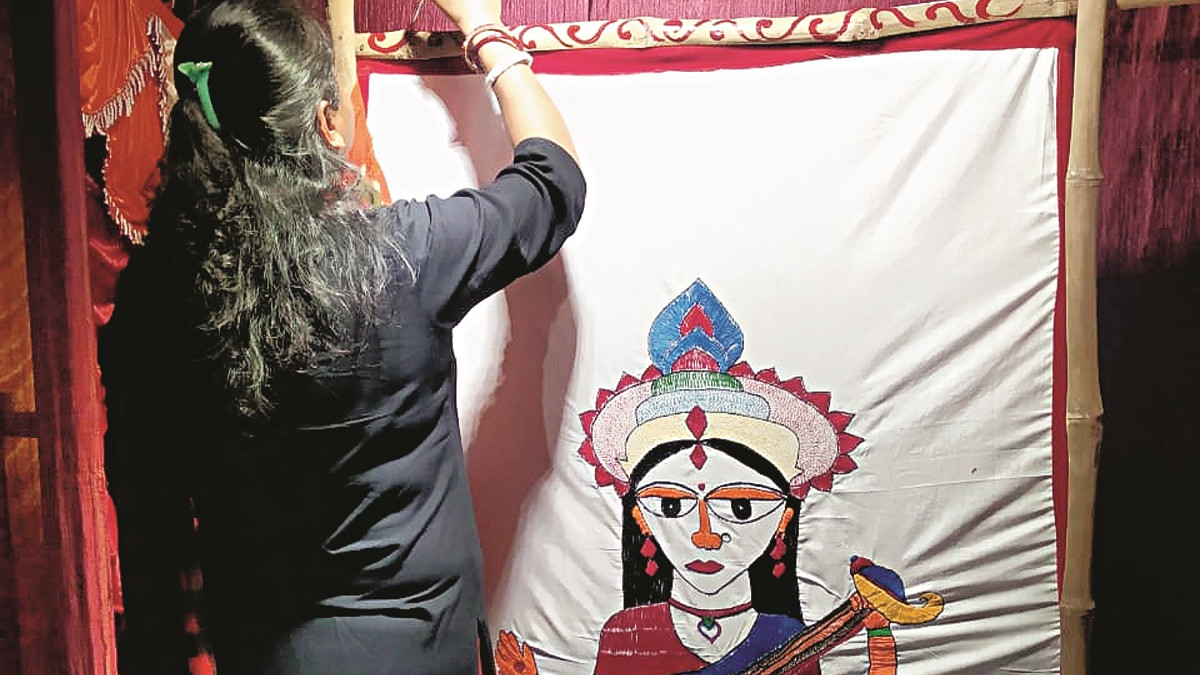A group of women who learnt tailoring to cope with the financial hardships posed by the Covid pandemic will on Tuesday offer puja to an image of Saraswati they have stitched together on a piece of cloth.
At a village in South 24-Parganas, 20 women have created their goddess of learning themselves. All puja-related arrangements have been done by the women and the priest is a woman, too.
“This puja is to celebrate our learning and perseverance,” said 30-year-old Minakshi Bhowmik.
Perseverance is in pursuing a skill in the face of resistance at home. A woman has to drop her four-year-old daughter at her sister’s house 10km away because her in-laws will not look after the child while she attends training sessions.
Perseverance is exemplified in the struggle of a 36-year-old widow who lives alone with her son. She has made use of worn-out clothes and bedsheets to stitch dresses.
The puja at their Konchowki village, a few kilometers from Joka, is to celebrate a new beginning and a sense of empowerment the women have achieved from their newly acquired skills.
“For us this training is our Saraswati and we hope that with the skill we have acquired, we will be able to fight our circumstances and live a better life,” said 36-year-old Milan Singh, whose son will appear in Madhyamik this year.
The group includes 20 women aged 18 to 40 and they have chosen Saraswati puja to showcase the work they have done so far and get a sense of what people think of their creations.
Many of these women had never stitched before. The Covid pandemic forced them to “take a plunge” and upskill themselves in a situation where their husbands had lost jobs.
The training in stitching, tailoring and embroidery started in November and has been conducted in three phases by the NGO Santoshpur Agantuk.
The organisation, which works among women and children, has rented a space at the village where the women can work together.
“These women were already financially deprived. The pandemic has only intensified their troubles. Some of them had to fight resistance at home to an extent that they had to forego a few days' training. But they came back,” said Tushu Naskar, the creative head of the NGO.
“The idea is to make them independent and arm them with a skill because at the most what they were allowed to do is work as a domestic help.”










